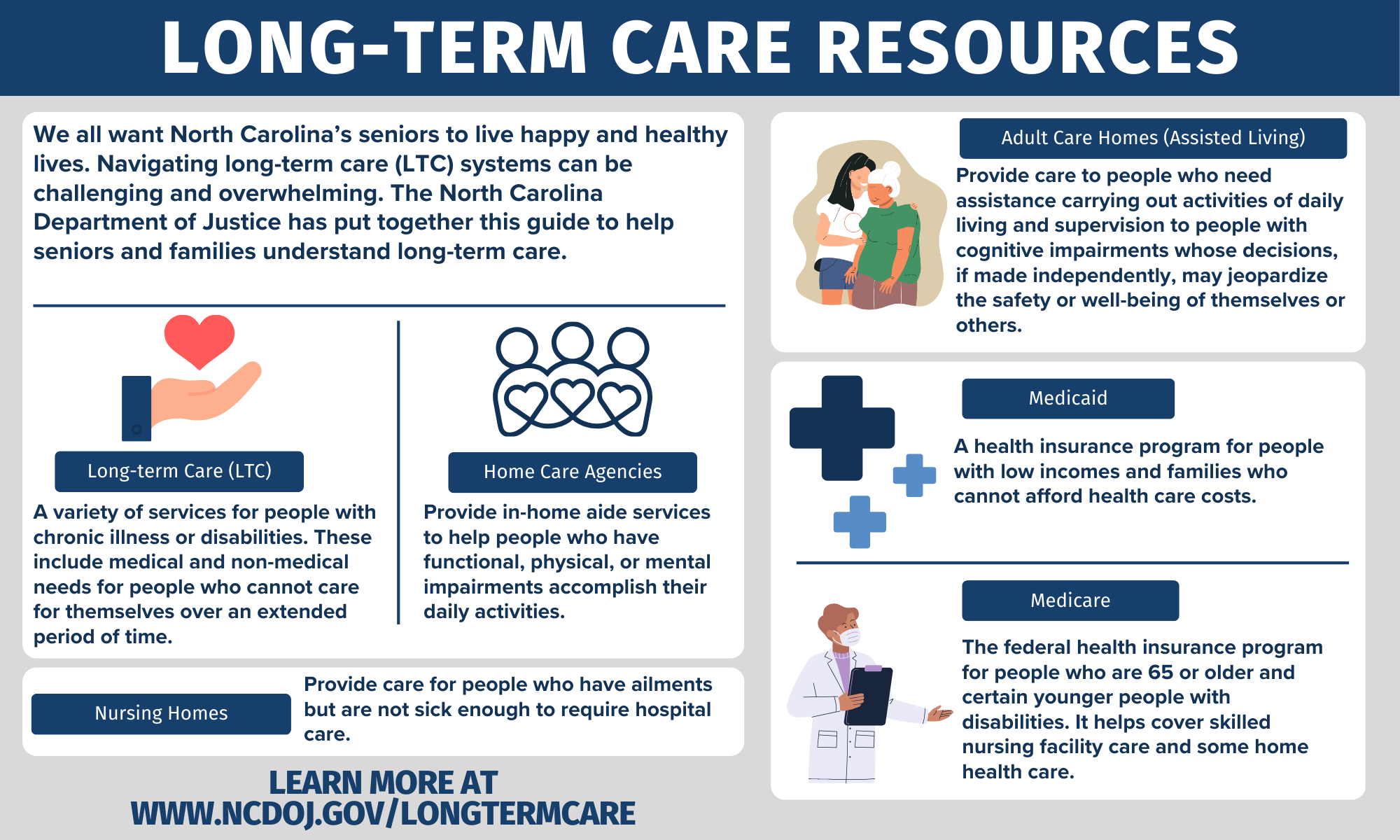
For Immediate Release:
Thursday, June 6, 2024
Contact:
Nazneen Ahmed (919) 716-0060
(RALEIGH) Attorney General Josh Stein today joined elder care advocates to share a resource card that helps seniors and families in North Carolina navigate care options for our aging population. June is Elder Abuse Awareness Month, and the Department of Justice works to protect North Carolinians, including senior citizens, from scams, fraud, and abuse.
“We all want to age with dignity and comfort, but it can be stressful to figure out how to best get care,” said Attorney General Josh Stein. “I’m grateful for the hard work our partners are doing to support families and seniors, and I’m pleased to share this card to help North Carolinians begin to understand their options for elder care.”
The card helps explain the options for long-term care facilities and health insurance in North Carolina. It helps answer basic questions about the types of care options available to North Carolina families, how they can begin looking for care, and what to do if they’re concerned about the type of care that their loved one is receiving in a Medicare or Medicaid-funded facility. The card includes additional state and federal agencies and advocacy groups that can help families navigate these important milestones.
“When it comes to long-term care, AARP found that seven in 10 Americans will eventually need care; but most underestimate the costs,” said Michael Olender, director of AARP North Carolina. “Most of those who plan ahead (78 percent), wish they did so sooner. Making a long-term care plan is more than just buying insurance or updating a will. It’s about mapping your own course and living life as you want. Small steps now will secure a safer, happier future and AARP as well as the new North Carolina long-term care resource guide can help.”
“In North Carolina, over 93,000 residents are receiving services in long-term care facilities,” said Kay Poksoy Castillo, executive director of Friends of Residents in Long Term Care. “Nationally, seven out of 10 people will require long-term care in their lifetime. Every day, these individuals are at risk for issues such as low staffing which delays their care, violation of residents’ rights, social isolation, ongoing health complexities, and many other issues. Our goal at Friends of Residents in Long Term Care is to ensure residents have a voice, that residents are respected, and that residents are supported in their care needs. With so many individuals and their families facing new care needs as they age, resources like this one will support North Carolinians in making long-term care decisions for themselves and their loved ones.”
“The NC Navigator Consortium provides free, unbiased healthcare.gov and Medicaid application assistance and provides health insurance literacy education to help North Carolina families understand what doctors, prescriptions, specialists, and care facilities are covered by their health plan,” said Nicholas Riggs, director of the NC Navigator Consortium. “The Consortium is grateful that the NC Department of Justice understands the need to connect folks with long-term care resources, whose efforts will better protect North Carolinians and provide peace of mind to those in our state navigating what can be a difficult system.”
The Department of Justice works to protect seniors from abuse through its Medicaid Investigations Division, which investigates and prosecutes health care providers that defraud Medicaid, abuse of Medicaid recipients and patients in Medicaid-funded facilities, and misuse of patients’ private funds. MID has won more than $1 billion in restitution and penalties for the North Carolina Medicaid program since 1979. North Carolinians can report concerns of fraud or patient abuse at 919-881-2320. The department also works to combat elder scams and protect seniors from senior fraud. A senior scam guide is available to download to help people understand how common scams work and how to avoid them.
A copy of the card is available to view and download here.
A more comprehensive list of digital resources is available here.
###
